A North Korean Mom and Son’s Harrowing Escape | Harry’s Story
The town I grew up in was surrounded by mountains. When the season was right, my friends and I would hike up to look for pears. Fresh fruit was a luxury in North Korea, but the mountainside was covered in orchards. One day we snuck in when the fruit was still green, hoping to avoid the guards.
I hid in a tree, passing down pears to my friends, when we heard a whistle blow. My heart was pounding; it was like a heist movie. I rolled away and ran out of danger. Somehow, we got away with it. It didn’t even matter that the fruit we ate was not ripe and made our stomachs hurt—we felt unstoppable.
Little did I know that just a few years later, I would be running for my life once again… but this time, it was not a game. I would be escaping from North Korea.

Life in North Korea was normal to me. I went to school and spent time with my friends and older sister. All I knew about South Korea was from the movies I’d secretly watched. It seemed like a scary place, where they trafficked drugs and stole your organs.
My mom was often busy with work. She had a job that connected North Koreans to China, wiring money between families. With her income, we were able to live comfortably. But it was risky. She could usually bribe the guards to let her cross the border safely, but it wouldn’t work forever. One day, she was caught and sent to one of North Korea’s brutal prison camps.

My mom spent two years in the prison camp, forced to do intense labor every day while barely being fed. She told us later that she had shared a concrete cell with 50 other people and they lacked basic things like soap, toilet paper, and sanitary products. Guards would abuse their power and find any reason to assault them.
Many people in the camp were also women who had been arrested for crossing the border, trying to find ways to make a living and take care of their children. Dying in prison meant your crimes would be passed on to your family. And so, many of those women endured faithfully until they were released, and then passed away afterward.
When my mom finally left the camp, she quit the work she was doing and told her clients she was done. But one of them refused to hear it.

He was a South Korean fisherman whose boat had been thrown off course by a typhoon, and North Korean authorities refused to let him return home. One night, he showed up drunk at our house and threatened my mom. If she didn’t take him across the border, he would turn her in. So she had no choice. None of us did.
My mom took me with her and brought the old man to the border of North Korea. We were supposed to meet some brokers who would take him across, but they couldn’t agree on a price or a place. After a few days of waiting, everything went wrong.
The police had discovered our plan. They had our photos and were already putting up wanted posters for our capture. There was no way we could go home now. The choice was made for us. We had to flee the country with the old man.

I thought I would die that night. Armed soldiers patrol the river bordering North Korea and China, and are told to shoot defectors on sight.
If caught, my mom would have faced life in prison for her second offense—no better than a death sentence. But somehow, we made it to the other side.
In China, we waited three days in the mountains for our brokers. Every moment spent at a standstill was a huge risk, because Chinese authorities pay local citizens to report North Korean refugees. When it became clear that help wasn’t coming, we headed for a nearby village, laying low in the grass until the cover of night.
By nightfall, we took our chances and entered the village. Luckily, we met a kind woman who introduced us to a new broker. This broker helped us get to another city where the old man was picked up by South Korean officials and flown home to his family. As for me and my mom, we couldn’t go back to North Korea. So we went to see my middle sister, who had already been in China for quite some time.

Before I was born, my mom took my two sisters to China with her. She wanted them to stay there safely, but my oldest sister refused and returned to North Korea with my mom. My middle sister was left behind, sent to live with a trusted friend. But the unthinkable happened. At 12 years old, she was trafficked and sold to be married to a much older man. Every night, she would stand by the water well, threatening to hang herself if the man came near her.
But one year later, the inevitable happened. When she was just 13 years old, she had a baby.
Like many other young North Korean women, my sister went across the border seeking a better life, but ended up living her teenage years in captivity, with no laws or family to protect her. Every day she had imagined running away, until finally she did. She reunited with my mom in North Korea when she was 20.
But not everything went as hoped. Though she was happy to be together with our family again, it turned out life was just as hard in North Korea. In the end, my sister returned to her daughter in China just a few years later.

It had been years since we last saw my sister, and it was my first time meeting her daughter, my niece. We were the same age. For a month, we all enjoyed the bittersweet reunion. Then my sister connected us with another broker, and my mom and I finally escaped for good.
We eventually reached South Korea and it turns out, it wasn’t the dangerous country I had seen in movies.
Still, the memories of everything we had been through tormented me. I was angry at the old man who pressured us into his escape plan. I hated that my mom chose such a risky job in the first place.
Later we found out my oldest sister had been tortured by North Korean authorities when we left, leaving her devastated by mental illness. They wanted her to confess that our family had helped the old man escape. Someone had to take the blame. My older sister, who was once strong and reliable, would never be the same again.

When I first reached South Korea, I hid my past. Everything was terrifying and different—the culture, the lifestyle, and even the language. My new friends would hang out at internet cafes and I didn’t even know how to use a computer.
But I started learning. I studied hard in school and got a job to support myself. I began reading books to develop my own philosophy for my new life. I even started playing video games and for better or for worse, became just as obsessed as everyone else.
When I got to high school, I finally told my friends the truth about my life. Their response was so different from what I had expected. I found that rather than being cruel, they were curious. I realized the importance of my story, and how sharing my family’s painful experiences could change people’s perspectives about North Korea.

In 2019, at the end of high school, I met someone from Liberty in North Korea. I was so curious how she spoke about North Korea. She invited me to attend their Changemakers Summit and I had never experienced anything like that before—South Koreans, North Koreans, and even foreigners who were all young, open-minded, and interested in how to make an impact on this issue.
Truthfully, I never saw myself as an activist. I didn’t think I had what it takes.
But if I could change how just one person saw North Korea—to see the people and their resilience, bravery, and hope instead of the regime—I realized I was already acting as an advocate.
These days, I’m working and studying full time. After coming to South Korea my mom got her masters degree and is now writing a book about her life. My middle sister eventually escaped and joined us in South Korea too. She got remarried and finally gets to live a normal life. Even though we’re all pursuing different things, we’re still together, holding tightly to the hope that we will someday reunite with my older sister.
Today, I can be my own person. I can buy fresh fruit whenever I want, or walk along the Han river anytime. After all of the running and all of the pain, I am finally free to choose my own life.

Harry’s story echoes that of many North Korean refugees, who live with the weight of their past while grasping onto hope for the future. After what happened to his oldest sister, Harry says he has nothing left to lose. That’s why he chooses to speak openly about the horrific things he and his family have experienced, hoping to bring change and one day reunite with her in a free North Korea.
Help us continue to to sustain refugee rescues, empowerment programs, and efforts to change the way the world sees North Korea.
Give Today
How A North Korean Defector Sends Money Back Home
It may seem like North and South Korea are completely cut off from each other, but even after decades of separation, channels of communication persist. Defectors who have made it to freedom are bridging the gap, connecting people inside North Korea to the world beyond. Through extensive broker networks, they send back money and information, accelerating change in the world’s most authoritarian country.
Through this process known as remittances, millions of dollars are sent into the country every year, representing huge spending power. Here’s how they do it!
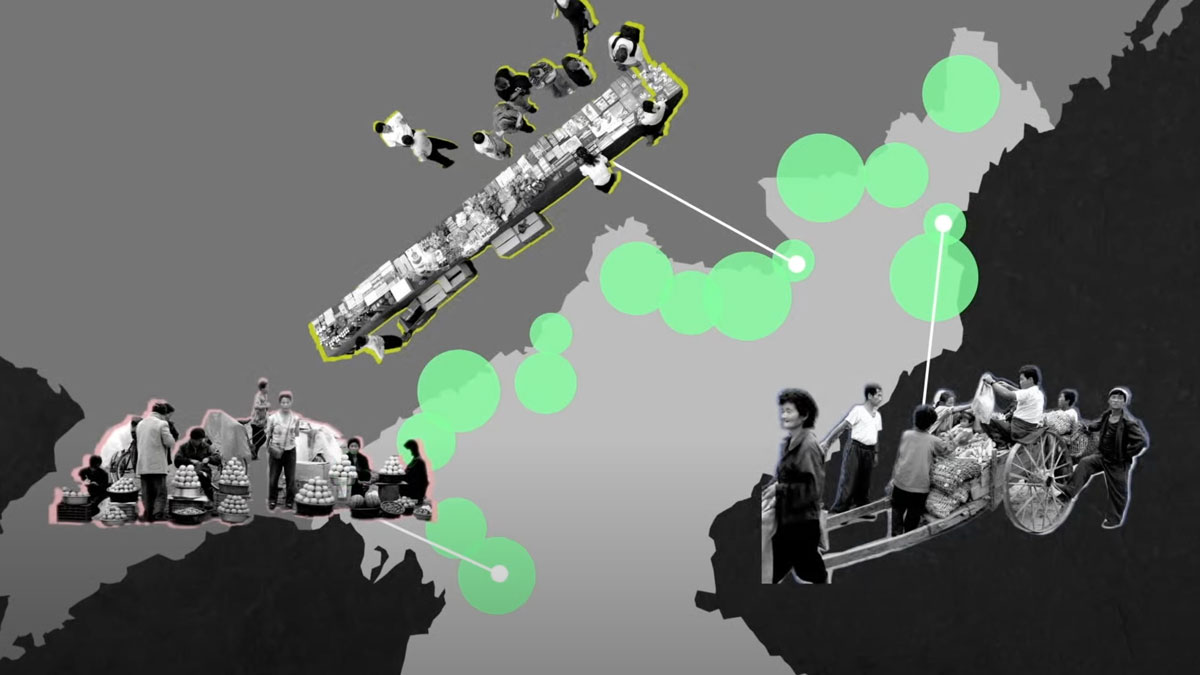
Reconnecting with Family
To send money back home, North Korean refugees must first contact their families. They hire brokers to find their relatives and arrange illicit phone calls close to the border with China, where smuggled Chinese cell phones can connect to international networks. In North Korea, people are often wary of such brokers, so they may have to be convinced with codewords or childhood nicknames that only the family would know, or recognizable handwriting and photos.
To avoid being caught, contact is often made from the mountain at night, or using a series of text or voice messages sent through apps like Wechat and quickly deleted. When the call finally happens, it can be emotional for both sides.
“You hear someone say, ‘Okay you’re connected, you can speak now.’ But no one says anything to each other. You just hear a high-pitched tone, and silence. Could this be real? You’re just crying, and can’t even speak.”
– Miso, escaped North Korea in 2010
How Remittances Work
There are different ways to send money to North Korea, but a simple version involves three parties: A North Korean resettled in South Korea, a remittance broker in North Korea, and the recipient in North Korea.
- A resettled North Korean, makes a request to a remittance broker to arrange a transfer. They wire money to a Chinese account controlled by that broker.
- The remittance broker in North Korea uses a smuggled Chinese phone to confirm receipt of the funds.
- After taking a hefty commission, they give cash to the refugee’s family. The family can confirm receipt of the money by sending a photo, video, or voice message back, so the sender can be confident that they’ve not been scammed.
With this process, the remittance broker in North Korea occasionally needs to replenish their cash on hand. This could happen through the physical smuggling of cash, but oftentimes money from their Chinese bank account is used to buy goods in China that are then sold in North Korea, generating cash. In this way, physical money never actually has to cross borders.
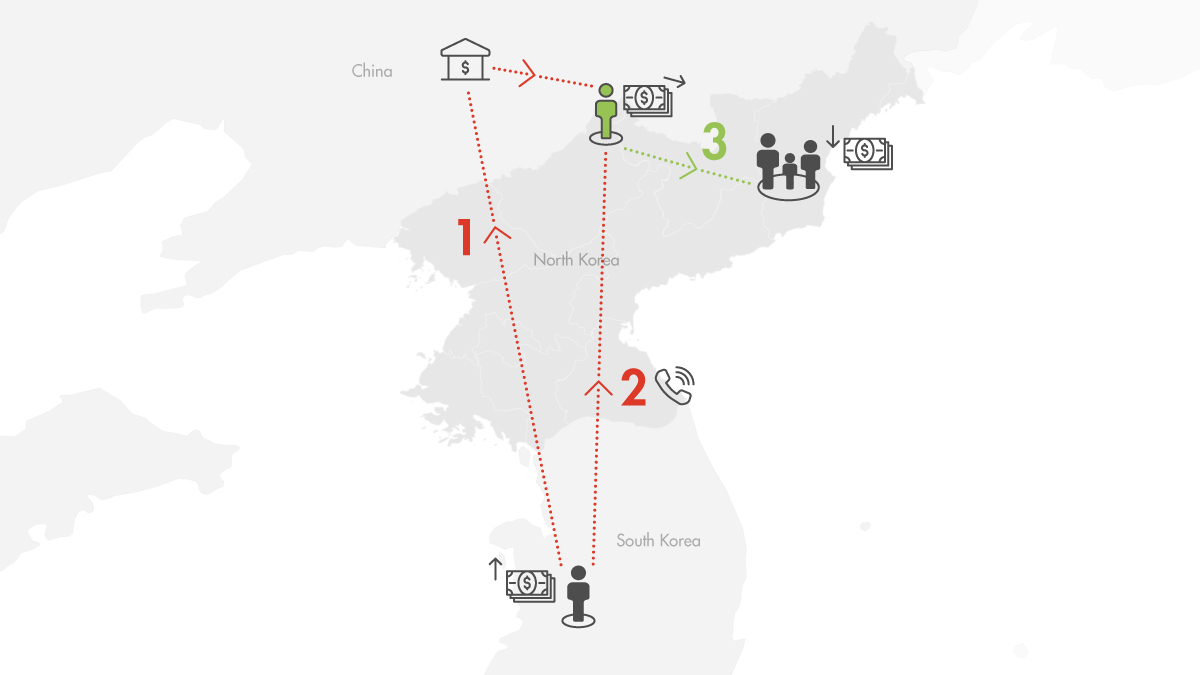
The Power to Change Lives
North Korea is one of the poorest countries in the world, whereas South Korea is one of the richest. Therefore remittances from relatives in South Korea or elsewhere can be absolutely transformative. The money is spent on almost everything, including food, clothing, shoes, medicine, housing, transport, and bribes to keep the family safe.
“I’ve sent money back to North Korea ever since I resettled in South Korea. I send an average of $1,500 a year. My parents used the money to buy a house! They’re also going to use it to help my younger brother escape and come to South Korea.”
– Jeonghyuk, resettled North Korean refugee
With new resources also comes new opportunities. North Koreans who never had the means before can now think about starting a business at the Jangmadang, or market. Since the collapse of the regime’s socialist economy in the 1990s, the markets have become essential to making a living. The flow of remittances is increasing trade, food security, marketization, and entrepreneurship, empowering ordinary North Koreans to gain autonomy.
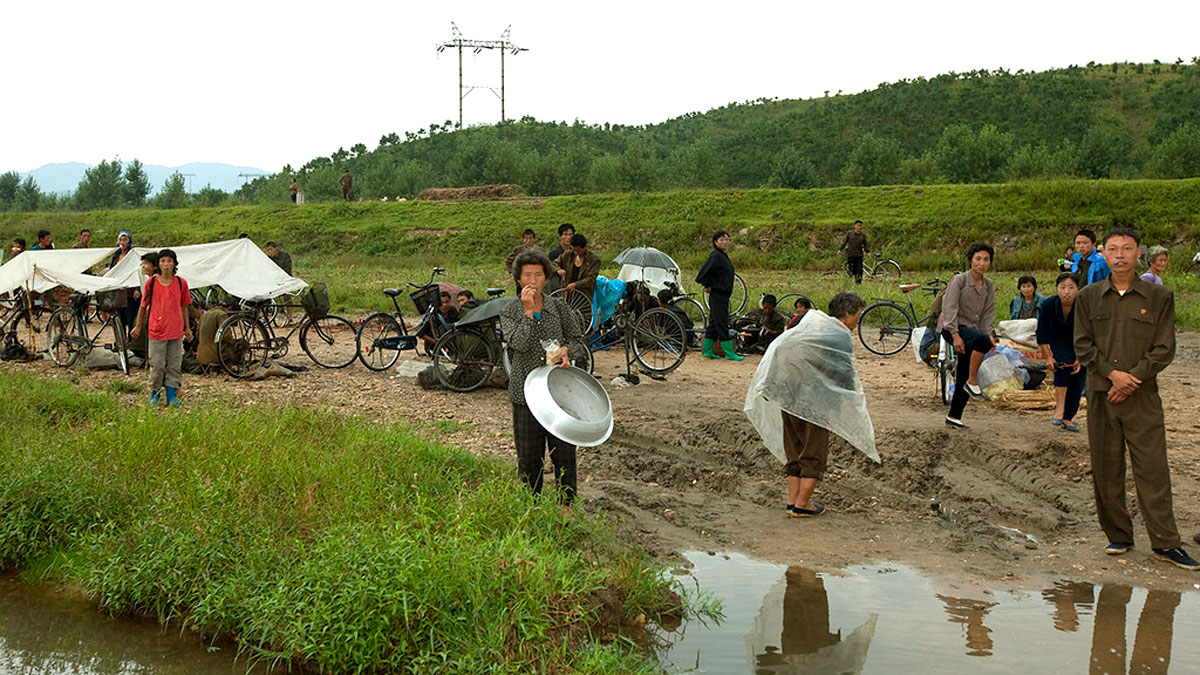
A Ripple Effect
Along with money, North Korean refugees send back news and information from the outside world. At first, family members back home may not want to hear about life beyond the border. Decades of propaganda villainizing the outside world can be difficult to overcome, and if caught in communication with defectors, they could face serious punishment.
But as money continues to flow in, many people can’t help but be curious- what do their relatives outside do to make a living? What kind of house do they live in? Is life there like the K-dramas smuggled into North Korea? Conversely, defectors ask their family members, what they can do with the money in North Korea? This exchange of information is incredibly valuable, providing a glimpse into the most closed society on earth.
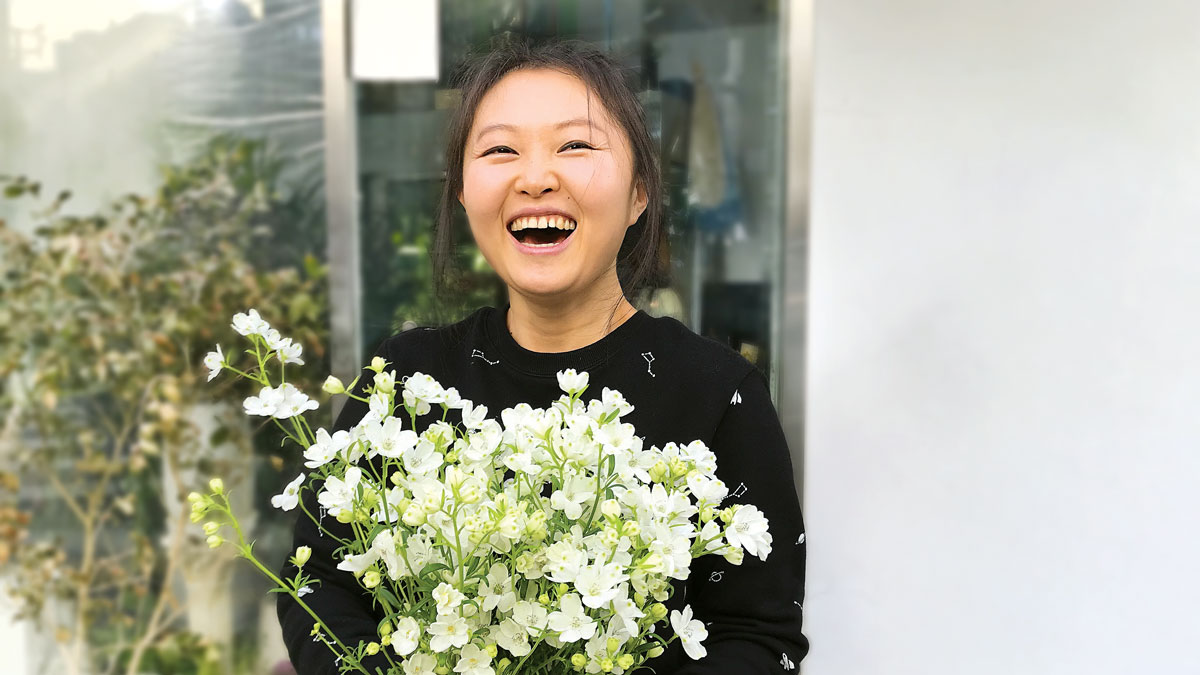
The flow of information into North Korea erodes the regime’s propaganda and changes worldviews. As the people learn more about the wealth and opportunities of the outside world, some may also risk their lives to escape. Money sent from remittances can also be used to fund this dangerous journey.
“When I first contacted my family back in North Korea after I resettled in South Korea, they didn’t believe that I was doing well here. My parents even resented me a little for leaving. But after I sent them money and told them more about my life here, their views changed. Now they realize that the regime has been lying to them and they’re not as loyal anymore. I have become a pioneer of freedom to my family back in North Korea.”
– Jo Eun, rescued by LiNK in 2017
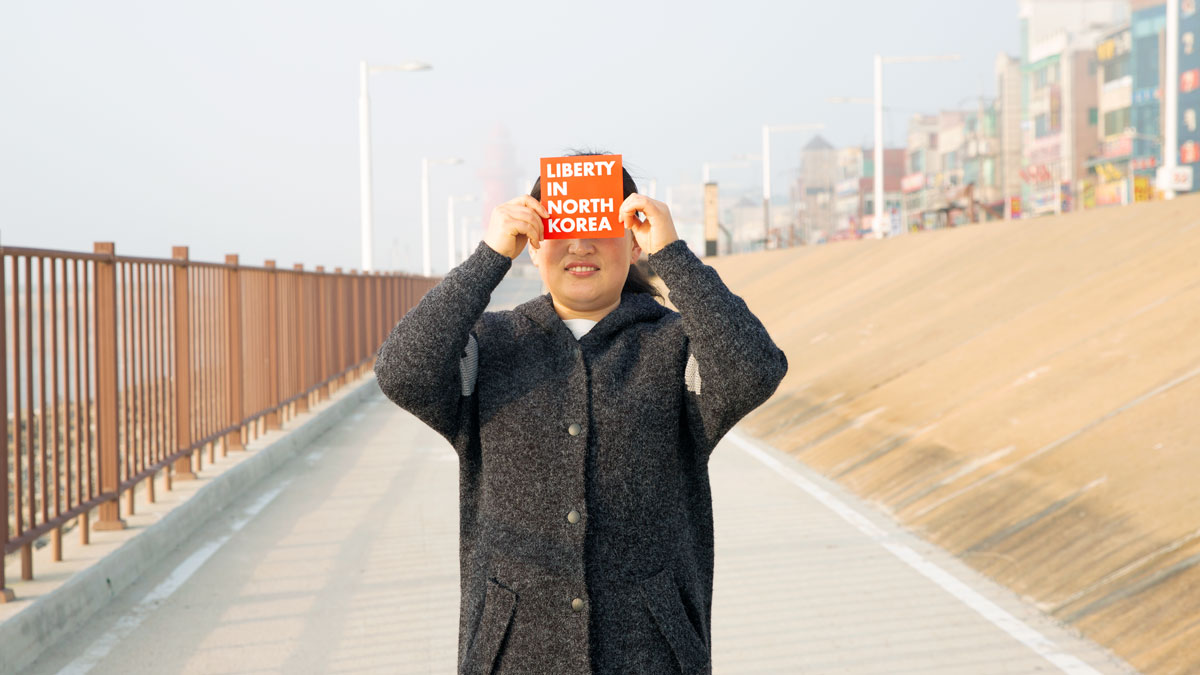
Agents of Change
Remittances are about more than just the movement of money. Refugees who have been separated from their families aren’t able to go back home themselves, but can still care for their loved ones in some way. Every phone call into the country and every dollar sent back represents one small step towards the day when the North Korean people finally achieve their freedom.
More than 33,000 North Korean refugees have made it to freedom, and although it has become more difficult during the pandemic, surveys report that 65.7% have sent money back to North Korea. At LiNK, we’re committed to working with and building the capacity of North Korean refugees so they can succeed in their new lives and make an even bigger impact in their communities and on this issue.




